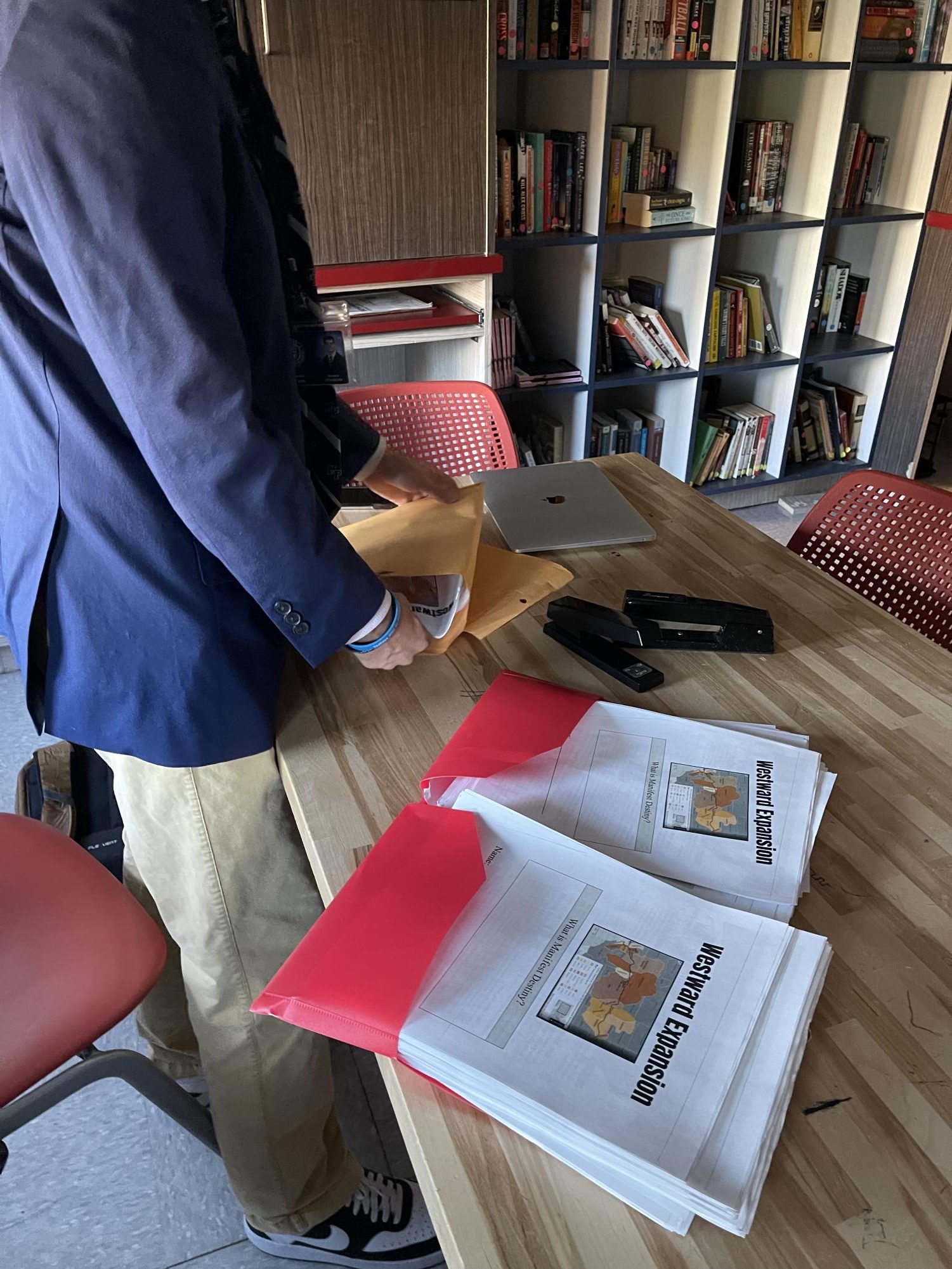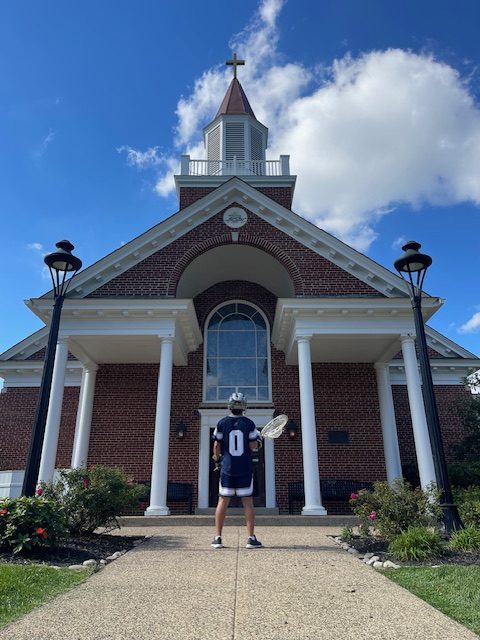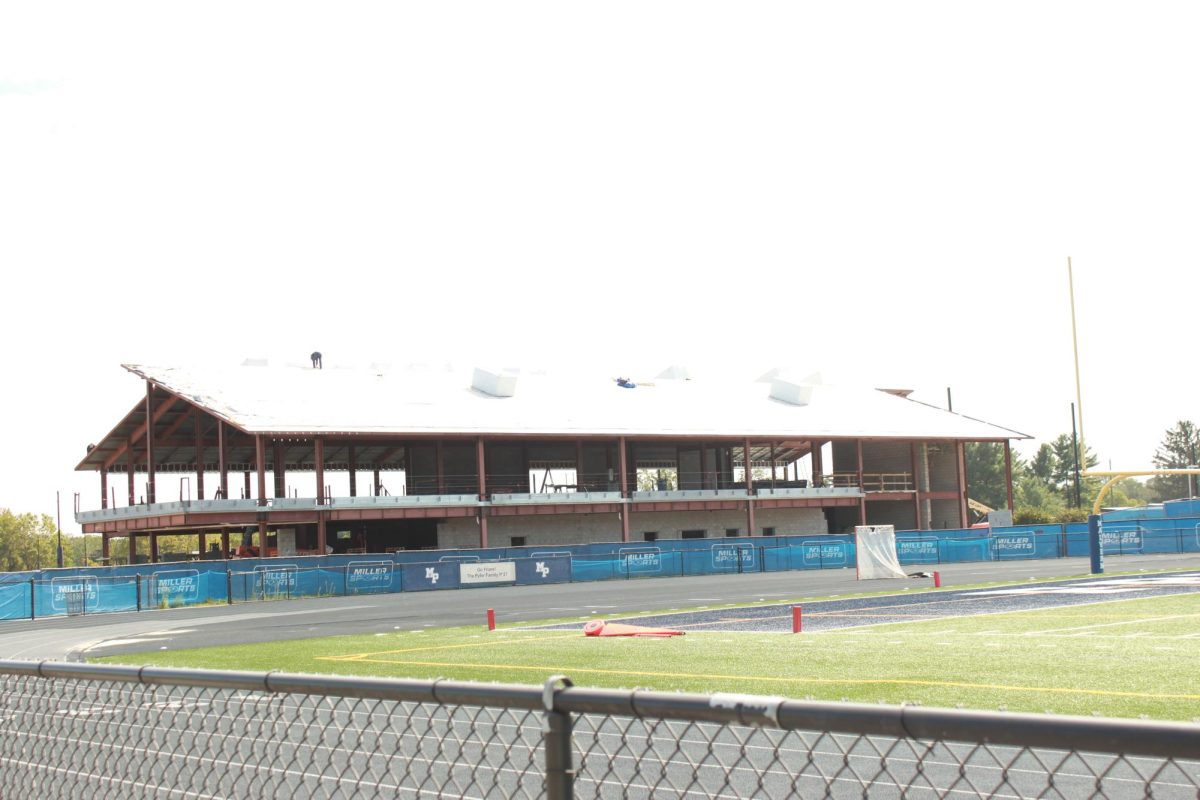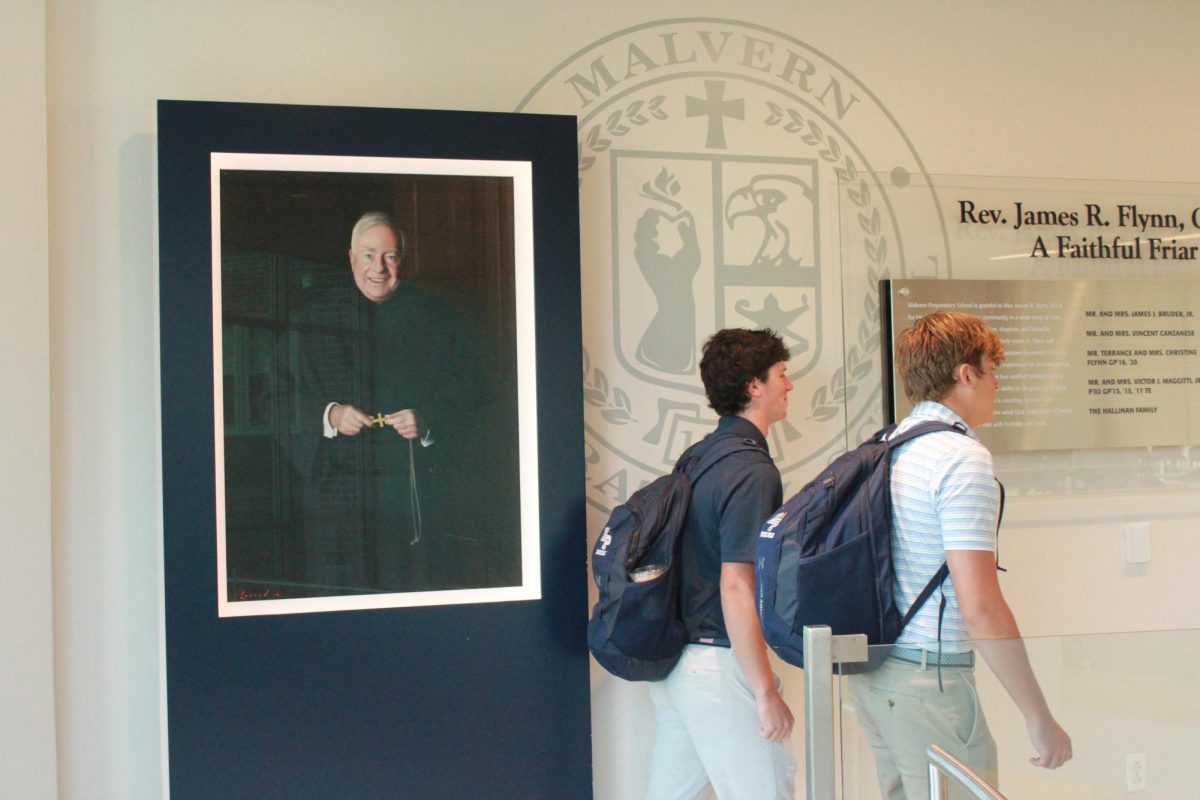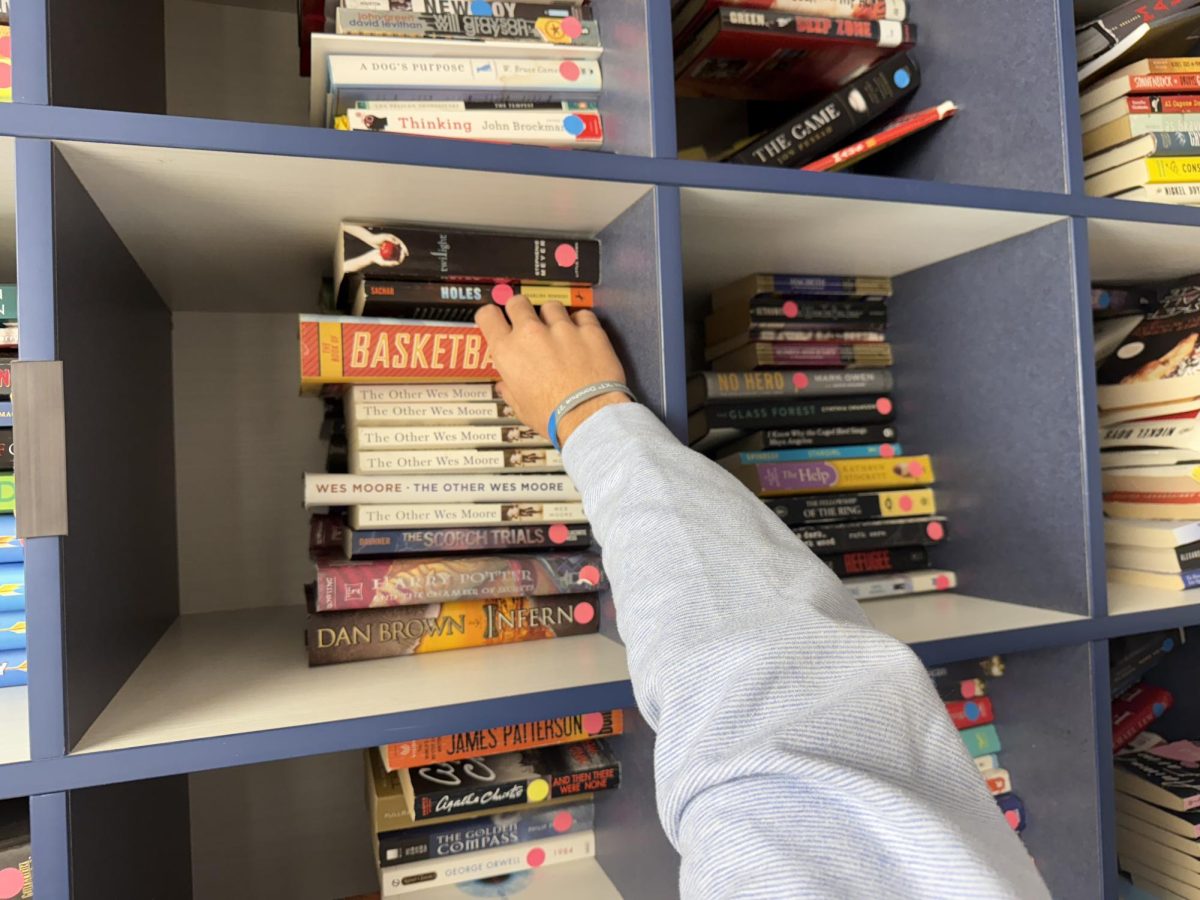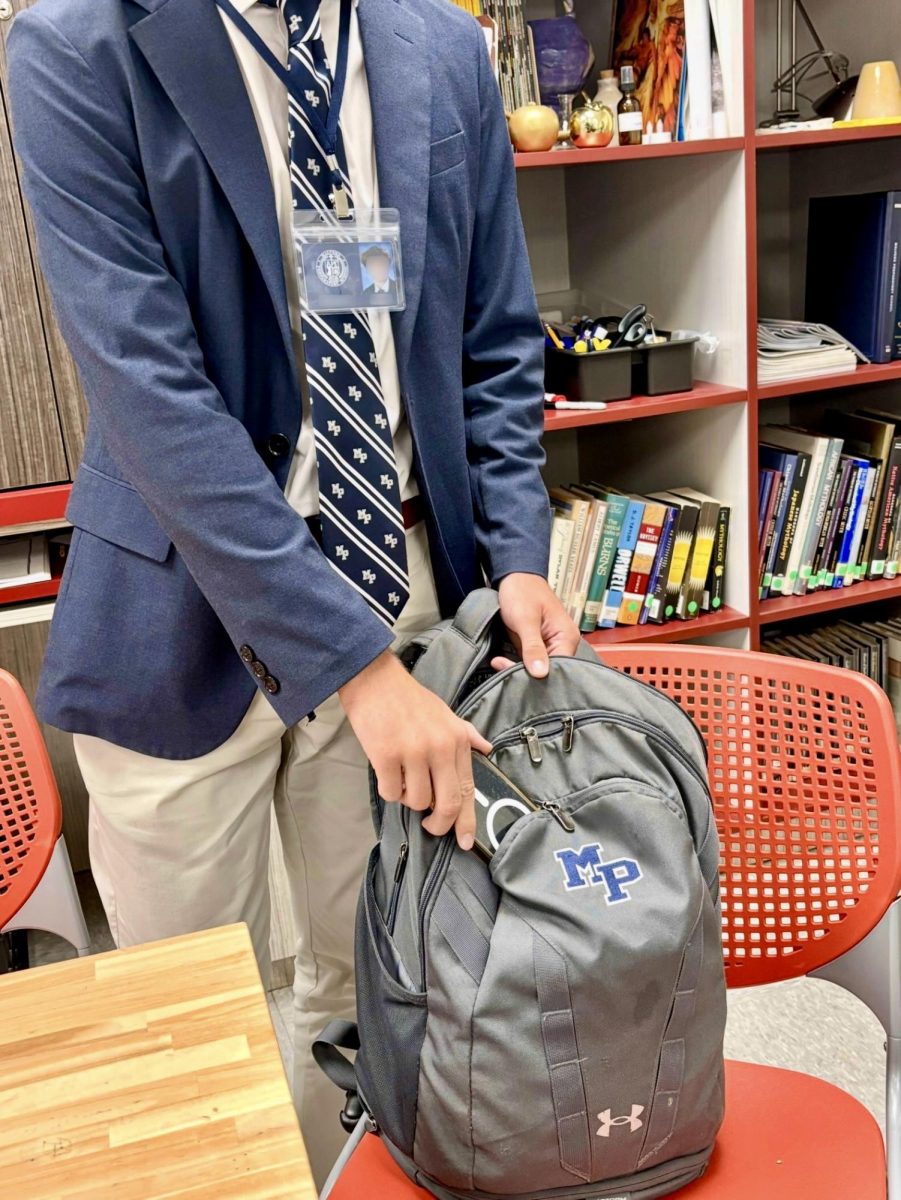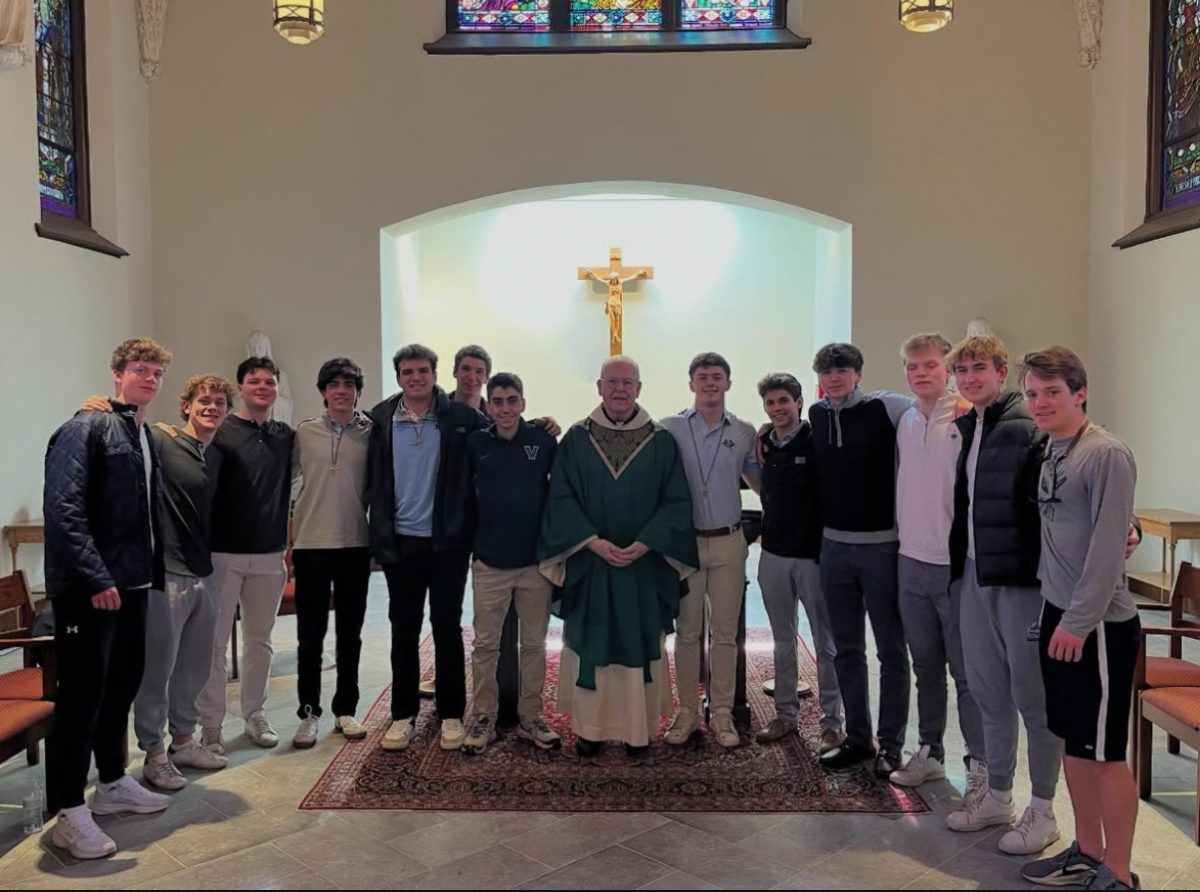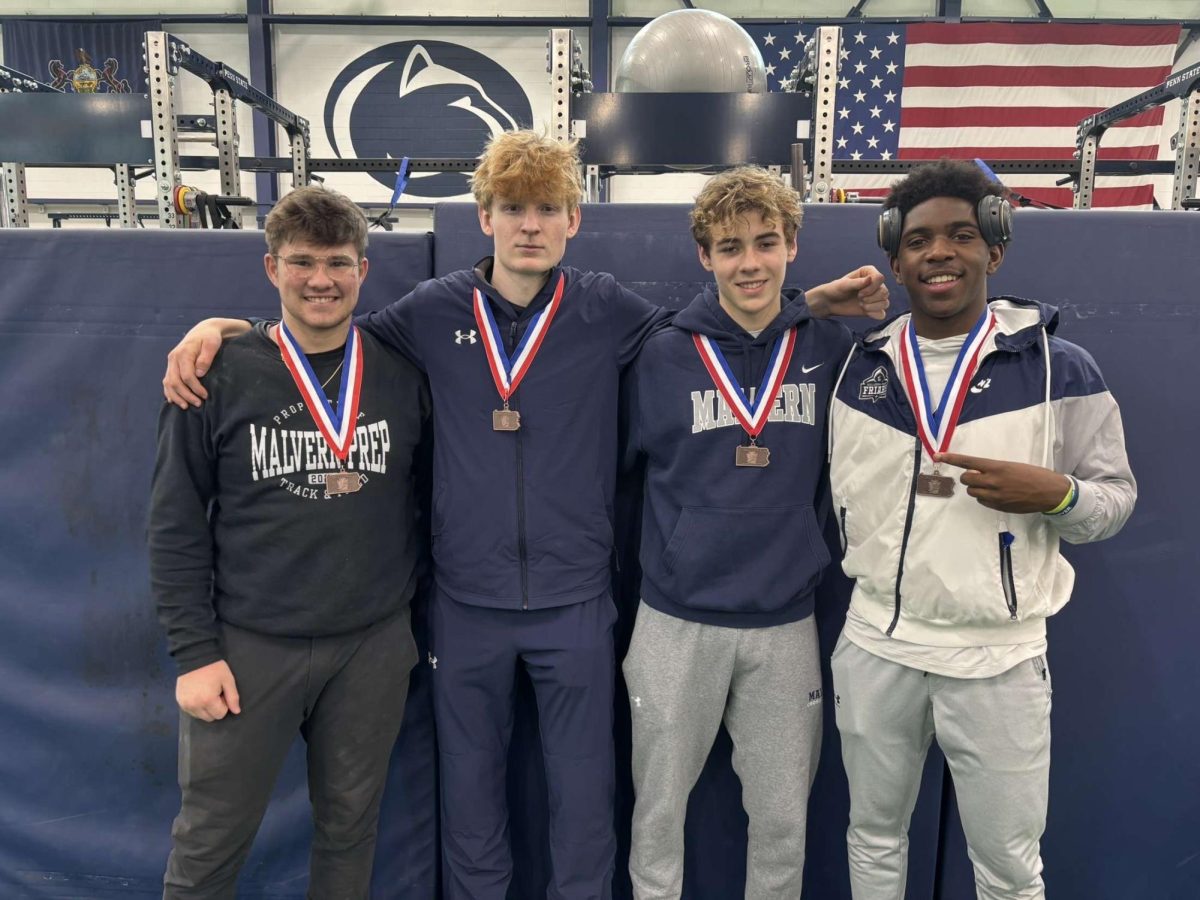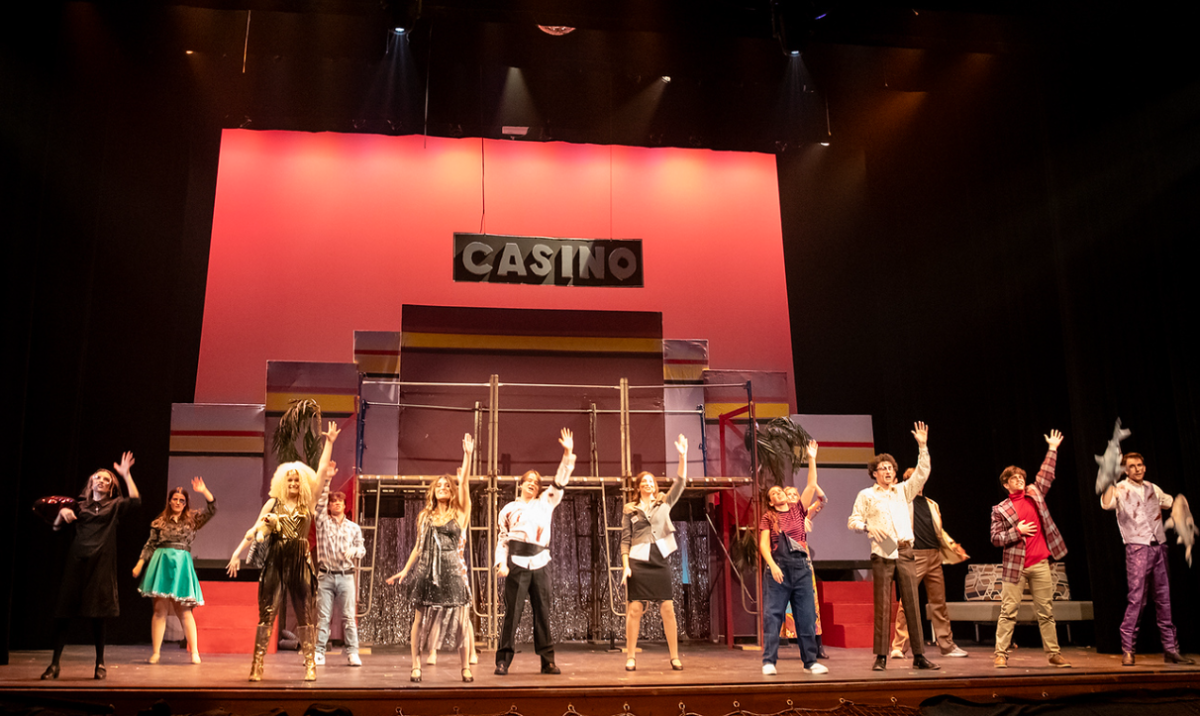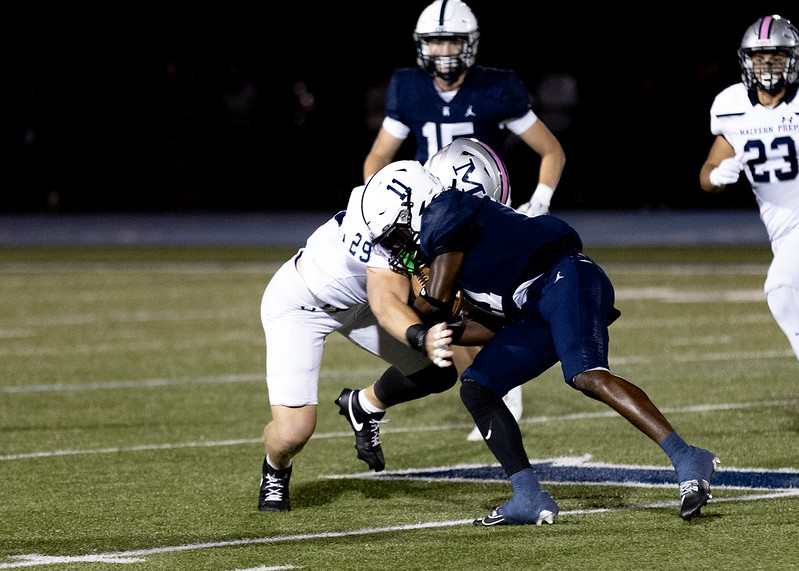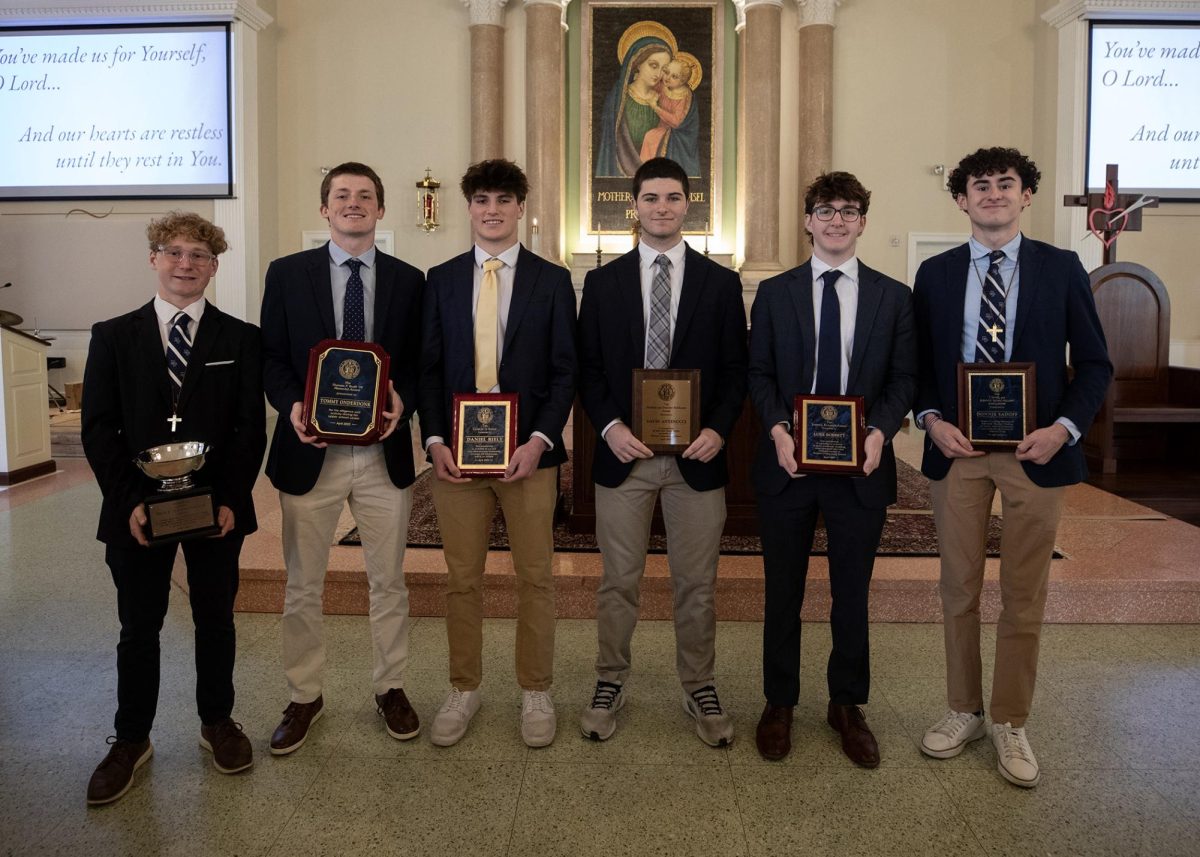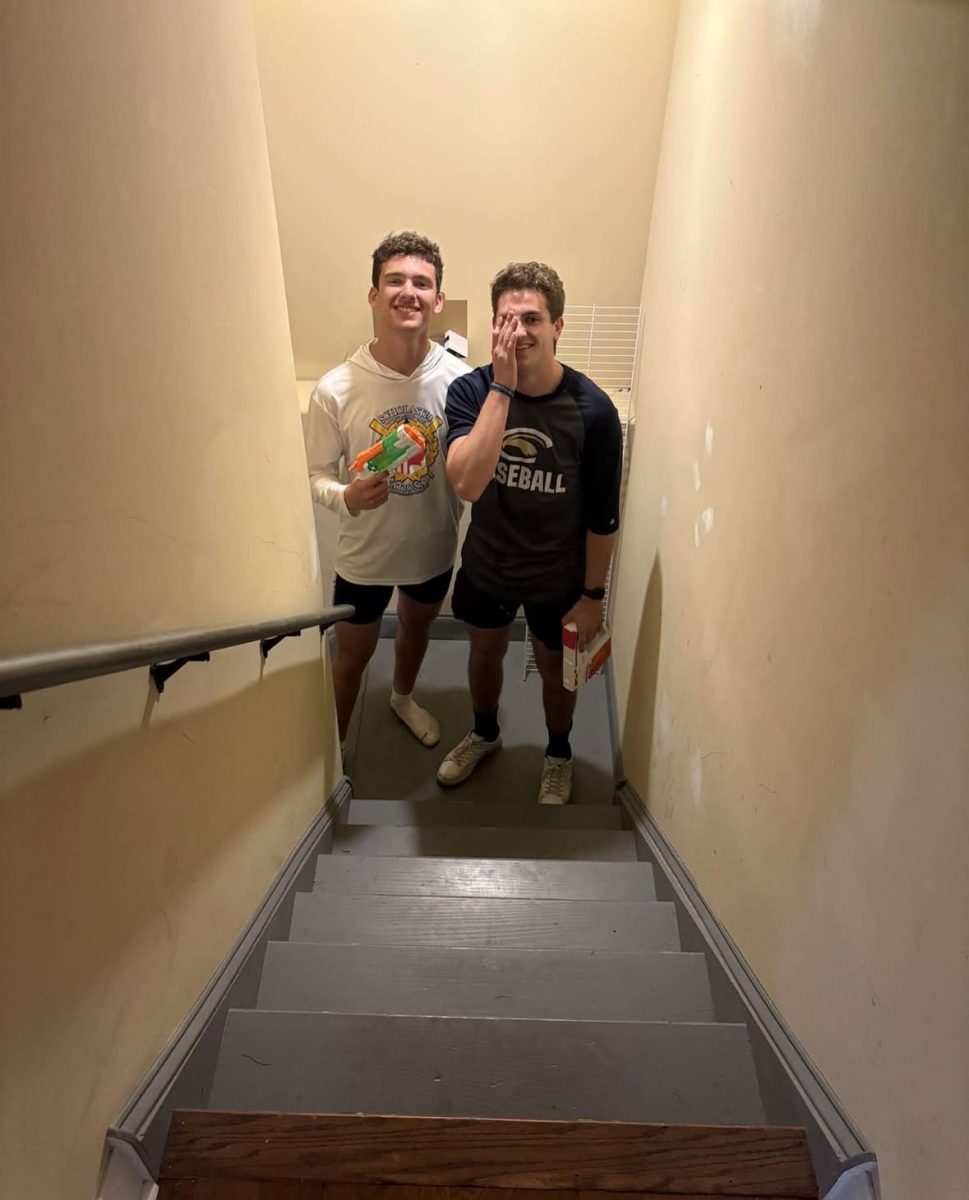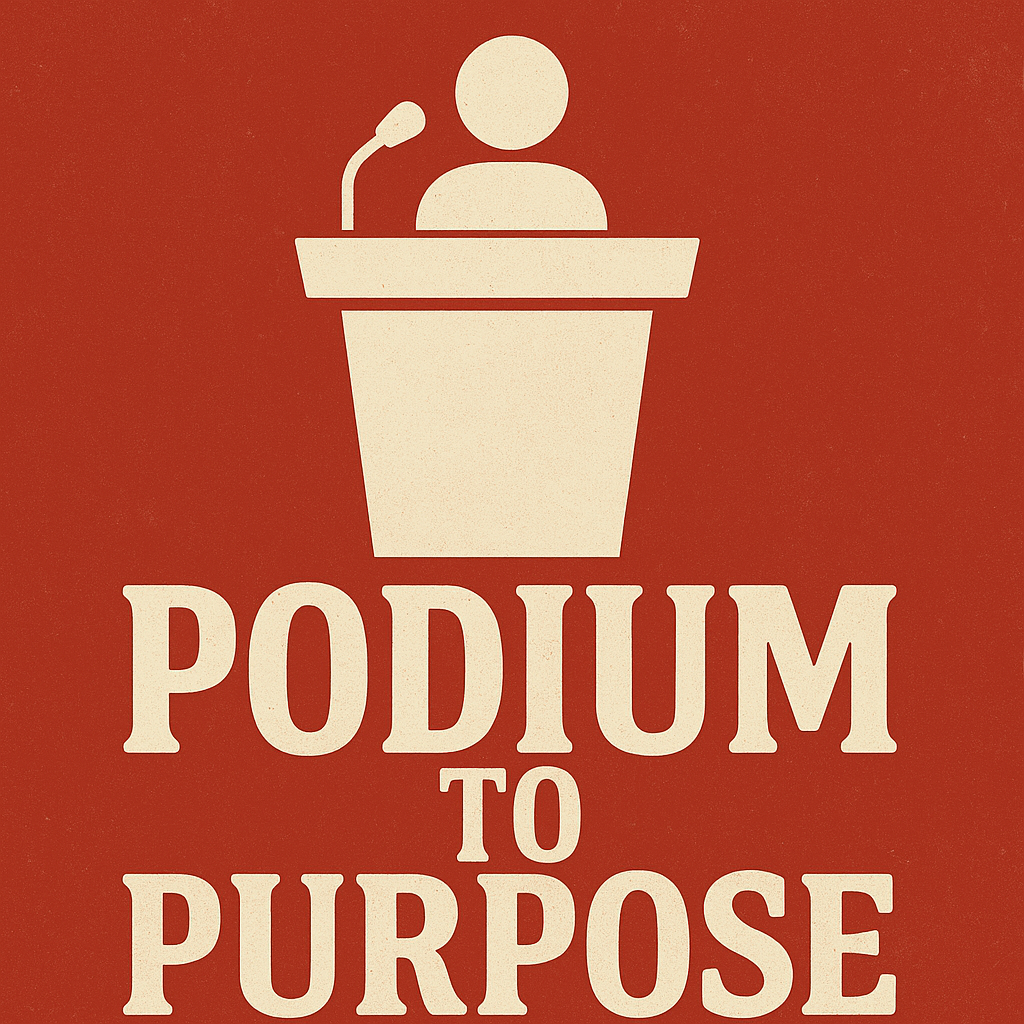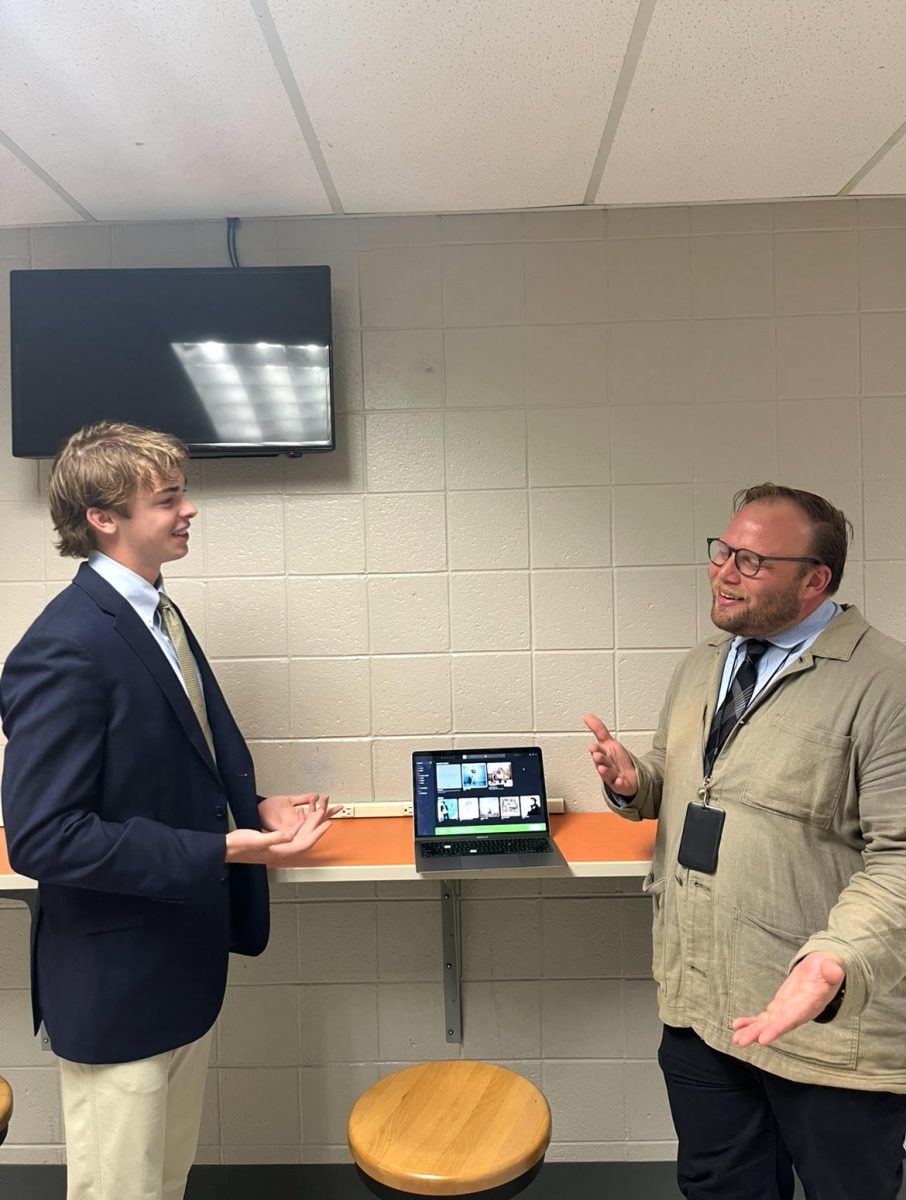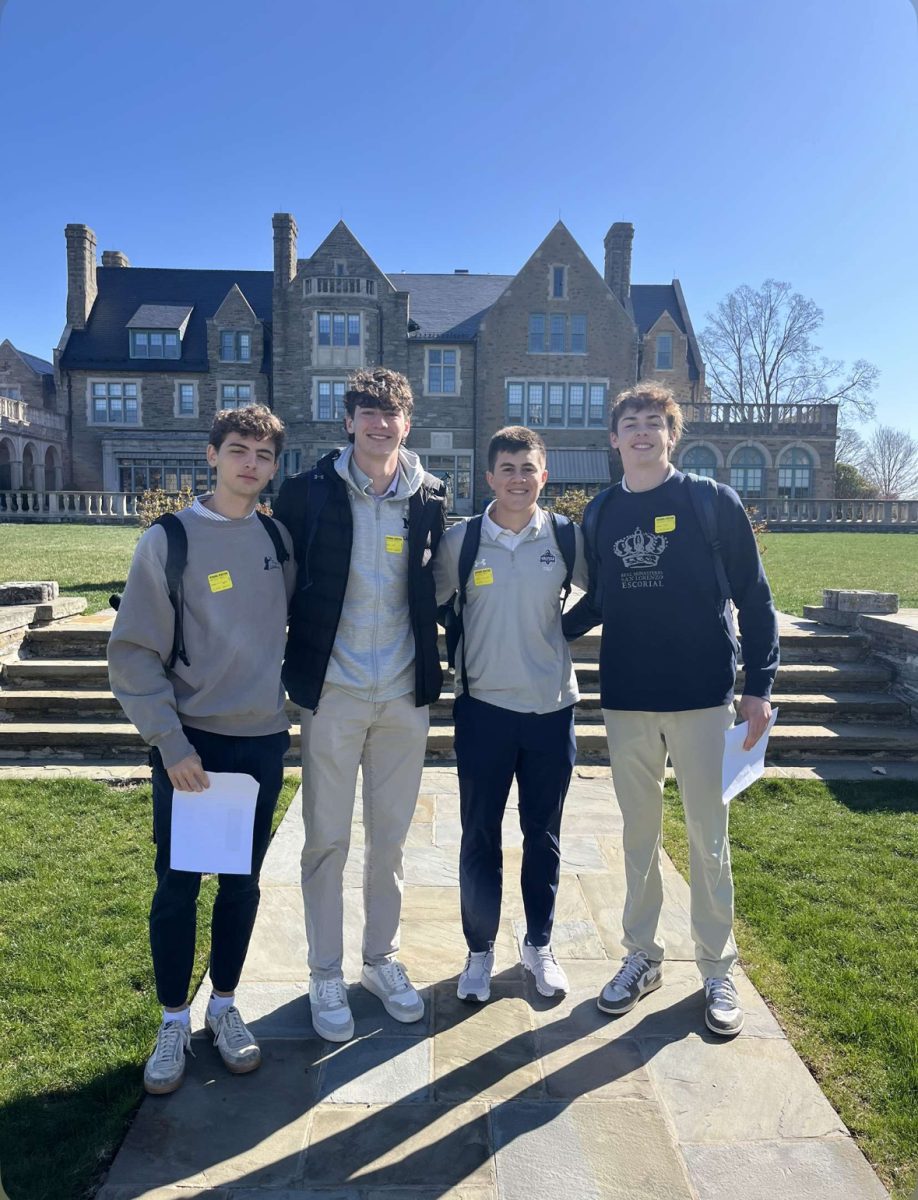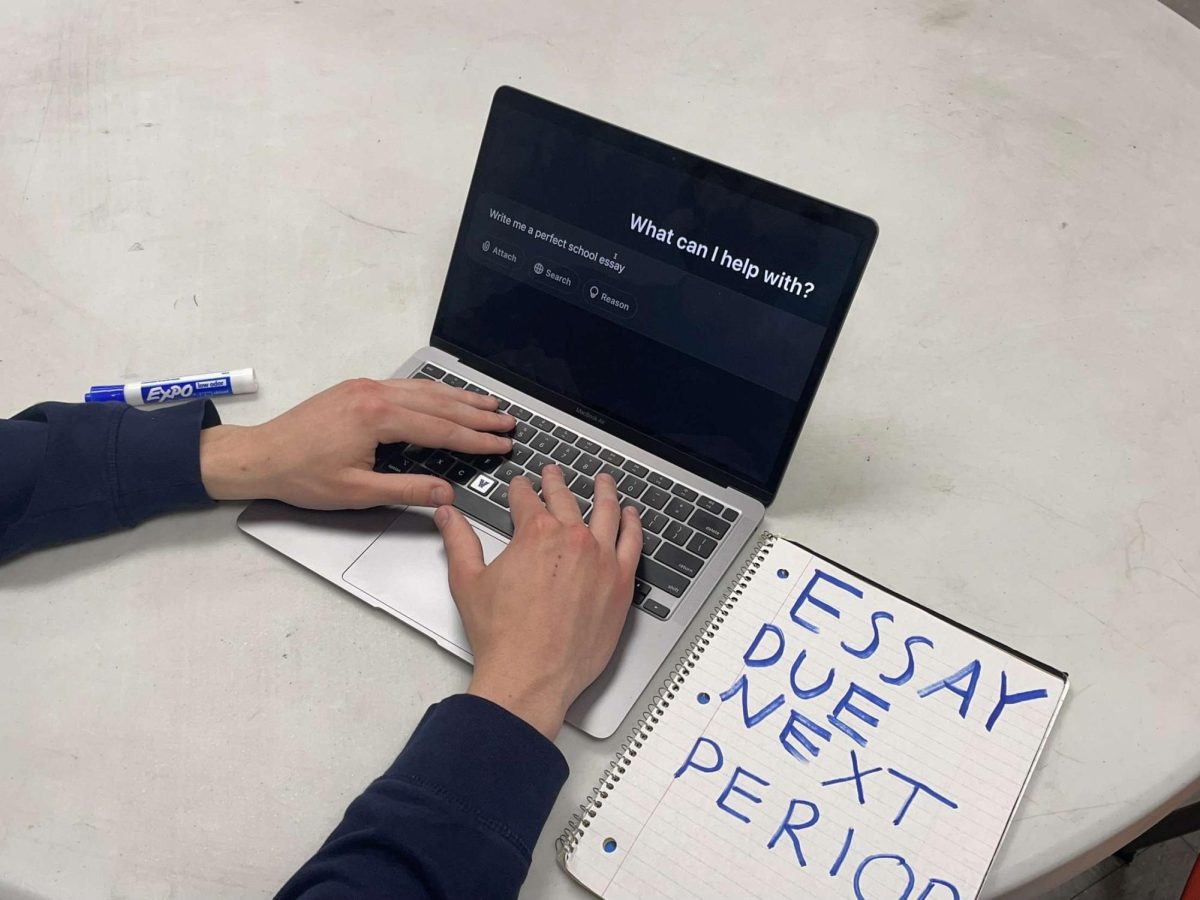Many teachers, both in middle and high school, are being overwhelmed in classes each term. With each class being comprised of as many as twenty students, many go ignored or fall behind as they compete for the teacher’s attention. However, the recent introduction of the TA program has alleviated pressures from both teachers and students alike. There are many students who are on varying levels of understanding of the topic, creating a complex teaching environment for already busy teachers. The TAs can help in the classroom by answering questions and outside the classroom by peer reviewing students’ work, all while gaining an extra class credit.
Luke Vandevere, Class of 2026, is one of the leading members, and he has experience from the bare-bones program last year, where he taught astronomy alongside Mrs. Reynolds.
“I was one of the initial TAs last year. We kind of had an influx of teaching assistants last year. . . I’m really into astronomy, and Malvern doesn’t have a lot of stuff for astronomy, so I thought it would be fun if I could teach my own class. Luckily, in middle school, there was a seventh-grade class with a whole term, two terms in astronomy, so I was able to pursue my interest through that. And that was so successful, and I had so much fun,” said Vandevere.
Vandevere also believes it is a good outlet to express his interest, not just in teaching, but in the subject that is being taught.
“There was so much learning going on that Miss V and I, and I think Mac Coleman and Nick Mejzak, who are also interested, decided to meet and start this program. So at its core, we started this program to further pursue our passions in school that we couldn’t find elsewhere. . . She had a part of the curriculum [that] was astronomy, and she didn’t know much about it. And that’s one of my strengths:… astronomy,” explained Vandevere.
At the end of our interview, Luke offered some of the biggest takeaways from his experience as a TA last year.
“Listen to your teacher, because they might have a degree in teaching, but they’ve also definitely taught before, so…there’s no reason why you should go on your own wing instead of going under theirs. But also, it’s a very different dynamic between a teacher versus a young student teaching. It’s important to be friendly with all these kids, but you don’t want to become their friend, because once you’re their friend, you’re no longer their teacher, and you need to maintain that level of respect,” reflected Vandevere.
Luke put an astronomical amount of effort into teaching astronomy, a subject he is very passionate about, to the class; It ultimately paid off in the end, to his surprise, with much of the class scoring highly on his tests.
“The first one was the first test that I had my students take. I was very, very surprised with how good they were doing for their age, and it made me feel accomplished as a teacher,” said Vandevere.
Luke‘s planning alongside Mrs. Reynolds ultimately culminated in debates, which furthered the interests, participation, and overall engagement of the students in the class.
“That’s something I tell a new TA is to do debates, because not only are you flexing your knowledge, but there’s more than just your knowledge on the line. Your dignity is on the line because you want to beat your friends. Because these middle schoolers are naturally competitive. Debates are a very good thing for students. They’re more likely to prepare for debates,” explained Vandevere.
Nick Mejzak, Class of 2026, also participated in the program last year; his path to becoming a seventh-grade math TA looked a little different than Luke’s.
“I was approached by Mrs. Giordano, and she basically came up and told me that there was a seventh-grade math class that was having trouble. They weren’t on the same level as the rest of the class at the time… I said, Yes. And from then, it became one of the best opportunities and one of the greatest things I was involved in last year,” Mejzak said.
Mejzak quickly noticed why Mrs. Giordano was looking for a TA and he figured out his role in the classroom. He then quickly developed ways to help both the teacher and students with his presence and prior math knowledge.
“In a classroom that has like, 20 some kids, and with only one teacher, it’s hard for one teacher to be able to help out every student, because some students might get ignored or might not be able to ask their questions, and so it’s kind of my job to go around and answer the questions that can’t be answered,” expressed Nick.
He also found it to be a good insight into the effort teachers put into their courses and plans for the week.
“ I really got to see the teacher side of the classroom and not to take teachers lesson plans for granted. I would go every Tuesday or Thursday morning to discuss the lesson plan for the week, and I didn’t even understand how much work the teachers put into their day-to-day schedule really lets me appreciate all the work they put into every single day of class,” Nick stated.
Nick also showed his appreciation of the experience and the desire to repeat it this year, along with his hope for an expansion of the program in the future.
“I’m excited to allow more people to experience this topic, because TAing for the middle school. That’s probably the greatest thing I did last year, at least one of the best. And I really think that more people should experience it, because it really just was really interesting thing I got to learn about and see firsthand. And I just hope now that we have the office open more people, if you want to, more people can come in if you happen to block. I highly recommend,” Nick stated.
The process started by students reaching out to be a part of the program, but for future TAs the hope is that it would be a mix of teachers suggestion and the students directly asking.
“they reached out to us, to Mrs. V and I, in order to be part of the program . . . But going forward, the idea is that, yes, there would be teacher recommendations, also an initiative by the student to want to participate,” Becket said.
Along with this, Mrs. Becket really valued student-led initiative, believing it could be one of the most important traits to become a TA.
“Initiative, a desire, probably number one and number two. People skills, I think recommendations by teachers are another thing we’re looking for, but right now, what we have is a solid group of boys who have already done it as our pilot program,” Becket disclosed.
The TA program is a branch of the peer-to-peer program, which is led by Ms. Sweeney.
“You know, we’ve had the peer-to-peer program, which has been Ms. Sweeney’s baby for a long time, and that has, I believe, developed into more of individual pull outs for certain teachers who just come to her and ask her for a little bit of help,” Becket said.
Mrs. Becket really specified the importance of the similar age ranges between the Tas and the students, believing that could bridge the disconnect between the teachers and the class.
“Since the TAs are closer in age, they’ll remember how it felt to sit there and not understand a concept, and perhaps be able to explain it in a way that the teachers never thought of it from that perspective. . . So one of the things I think happens in the classroom is when you have older students in there, you bring in mentors for the younger students, and perhaps allow those middle school students to feel a little bit more confident in a subject they might need a little more help on,” Becket said.
Mrs. Becket leaves all the members of the TA program and all prospective members these words of hope.
“What I hope happens with this TA program is that the current students that we have, their experience is so like powerful or they see themselves as these roles, as mentors to younger students that it helps to encourage others to want to join and to just put their little bit of expertise in that, that area here at school, whatever department it would be in,” Becket stated.
With this new program in its first year, there have been many successes; there are already about ten juniors and seniors signed up. The connection the TAs make with both the teachers and the students is immeasurable and helps further develop the Malvern brotherhood. The participating students develop valuable leadership skills, as well as gain a better understanding of the inner workings of a classroom. This program has been a great way to introduce students to the education industry, and it has helped to alleviate pressure put on teachers, giving them ample free time to plan fun, more engaging lessons.


